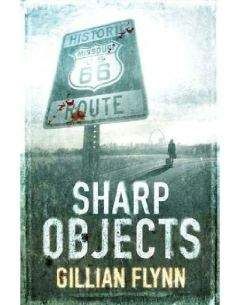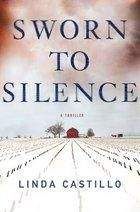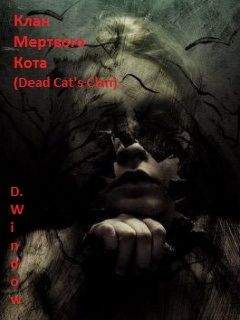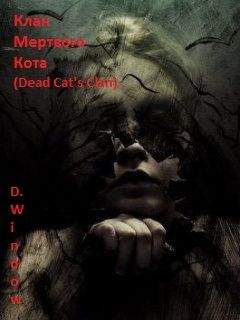Gillian Flynn - Dark Places
Ben had had sex twenty-two times now, he was keeping track, all with Diondra, and he’d seen enough TV to know that men were supposed to fall peacefully asleep right afterward. He never did. He got more agitated, actually, like he’d had too much caffeine, snappy and mean. He thought sex was supposed to chill you out—and the during part was good, the coming part was great. But afterward, for about ten minutes he felt like crying. He felt like, Is this it? The greatest thing in life, the thing men kill for and this is it, over in a few minutes, leaving you all gutted and depressed. He could never tell if Diondra liked it or not, came or not. She grunted and screamed but she never seemed happy afterward. She lay next to him now, her belly up, not touching him, barely breathing.
“So I saw some girls at the mall today,” Diondra said next to him. “They say you’re fucking little girls at school. Like ten-year-olds.”
“What are you talking about?” Ben said, still dazed.
“Do you know a little girl named Krissi Cates?”
Ben tried to keep himself from bolting up. He crossed an arm behind his head, put it back down by his side, crossed it over his chest.
“Uh, yeah, I guess. She’s in that art class I been helping out after school.”
“Never told me about no art class,” Diondra said.
“Nothing to tell, I just did it a few times.”
“Just did what a few times?”
“The art class,” Ben said. “Just helping kids. One of my old teachers asked me to.”
“They say the police want to talk to you. That you did some wrong stuff with some of those girls, girls who are, like, your sisters’ age. Touched them funny. Everyone’s calling you a perv.”
He sat upright, a vision of the basketball team mocking his dark hair, his perviness, trapped in the locker room while they fucked with him til they were bored, drove off in their bigass trucks. “You think I’m a perv?”
“I don’t know.”
“You don’t know? Why’d you just have sex with me if you think I might be a perv?”
“I wanted to see if you could still get it up with me. If you would still come a lot.” She turned away from him again, her legs pulled up to her chest.
“Well, that’s pretty fucked up, Diondra.” She said nothing. “So do you want to hear me say it: I didn’t do anything with any girls. I haven’t done anything with anyone but you since we started going out. I love you. I don’t want to have sex with any little girls. OK?” Silence. “OK?”
Diondra turned part of her face toward him, that single blue eye fixed on him with no emotion: “Shhh. The baby’s kicking.”
Libby DayNOW
Lyle was stiff and silent as we drove toward Magda’s for our meeting. I wondered if he was judging me, me and my packet of notes I was going to sell. Nothing I’d decided to part with was particularly interesting: I had five birthday cards my mom had given Michelle and Debby over the years, cheerful quick notes scrawled at the bottom, and I had a birthday card she’d written to Ben I thought might bring decent money. I felt guilty about all of it, not good at all, but I feared having no money, really feared being broke, and that came before being nice. The note to Ben, on the inside of a card for his twelfth birthday, read: You are growing up before my eyes, before I know it you’ll be driving! When I read it, I had to turn it facedown and back away, because my mom would be dead before Ben would ever learn how to drive. And Ben would be in prison, would never learn how to drive anyway.
Anyway.
We drove across the Missouri River, the water not even bothering to glisten in the afternoon sun. What I didn’t want was to watch these people read the notes, there was something too intimate about that. Maybe I could leave while they looked at them, assessed them like old candlesticks at a yard sale.
Lyle guided me to Magda’s, through middle-middle-class neighborhoods where every few houses waved a St. Patrick’s Day flag—all bright clovers and leprechauns just a few days stale. I could feel Lyle fiddling beside me, twitchy as usual, and then he turned toward me, his knees almost punching my stickshift out of gear.
“So,” he said.
“So.”
“This meeting, as is often the case with Magda, has turned into something a little different than planned.”
“What’s that mean?”
“Well, you know she’s in that group—the Free Day Society. To get Ben out of prison. And so she’s invited a few of those … women.”
“Oh. No.” I said. I pulled the car over to the curb.
“Listen, listen, you said you wanted to look into Runner. Well, this is it. They will pay us—you—to find him, ask him some questions, father to daughter.”
“Daughter to father?”
“Right. See, I’m running out of money. So this is where the next funding will come from.”
“So I have to sit here and let them be rude to me? Like last time?”
“No, no, they can fill you in on the investigation into Runner. Bring you up to speed. I mean, you think Ben is innocent now, right?”
I had a flash of Ben watching TV, my mom rustling his hair with one hand as she walked past with a load of laundry on her hip, and him smiling but not turning around. Waiting til she left the room before he combed his hair back into place.
“I haven’t gotten that far.”
My keys dangled from the ignition, turning in time to a Billy Joel song on the radio. I switched stations.
“Fine, let’s go,” I said.
I drove another few blocks. Magda’s neighborhood was as cheap as mine, but nicer. Every house had been built shabby, but the owners still found enough pride to slap on a coat of paint now and then, hang a flag, plant some flowers. The houses reminded me of hopeful homely girls on a Friday night, hopping bars in spangly tops, packs of them where you assumed at least one might be pretty, but none were, and never would be. And here was Magda’s house, the ugliest girl with the most accessories, frantically piled on. The front yard was spiked with lawn ornaments: gnomes bouncing on wire legs, flamingos on springs, and ducks with plastic wings that circled when the wind blew. A forgotten cardboard Christmas reindeer sat soggy in the front garden, which was mostly mud, baby-fuzz patches of grass poking through intermittently. I turned off the car, and we both stared into the yard, with its jittering denizens.
Lyle turned to me, fingers outstretched like a coach giving advice on a difficult play: “So, don’t worry. I guess the only thing to remember is to be careful how you talk about Ben. These people can get pretty riled when it comes to him.”
“What’s pretty riled?”
“Like, do you go to church at all?”
“When I was a kid.”
“So it would be kind of like someone coming into your church and saying they hate God.”
IT DID FEEL like a church. Or maybe a wake. Lots of coffee, dozens of people murmuring in dark wool clothes, regretful smiles. The air was blue with cigarette smoke, and I thought how rarely I saw that anymore, after growing up in Diane’s foggy trailer. I took a deep breath of it.
We’d knocked several times on the open door, and when no one heard, we just walked in. Lyle and I stood there, American Gothic style, for a good five seconds as the conversation trailed off and people started staring. An older woman with Brillo-wire hair in barrettes blinked at me with the force of someone giving a secret code, a smile frozen large on her face. A brunette in her early twenties, startlingly pretty, looked up from dishing peaches into a baby’s mouth and she too offered an expectant smile. One glaring old broad with a snowman’s build tightened her lips and fingered the crucifix on her neck, but everyone else in the room was clearly following orders: Be nice.
They were all women, more than a dozen, and they were all white. Most looked care-worn, but a handful had the bright, full-hour-in-front-of-the-mirror look of the upper class. That’s how you pick ’em, not by the clothes or the cars, but by the extra touches: an antique brooch (rich women always have antique brooches) or lip-liner that was blended just the right amount. Probably drove in from Mission Hills, feeling magnanimous about setting foot north of the river.
Not a single man there, it was what Diane would call a hen party (and then make that disapproving sinus sound). I wondered how they’d all found Ben, stuck in prison as he was, and what attraction he had for them. Did they sit in their tousled beds at night with their gelatined husbands snoring next to them and daydream about a life with Ben once they freed him? Or did they think of him as a poor kid in need of their altruism, a cause to be nurtured between tennis matches?
Out of the kitchen stomped Magda, six foot tall, her frizzy hair almost as wide. I wouldn’t have been able to place her from the Kill Club meeting, where everyone’s face was smeared from my memory, a Polaroid yanked out too early. Magda wore a denim jumper dress over a turtleneck, and an incongruous amount of jewelry: dangly gold earrings, a thick gold chain, and rings on almost every finger but her wedding finger. All those rings unsettled me, like barnacles growing where they shouldn’t be. I shook Magda’s outstretched hand anyway. Warm and dry. She made a sound like mmmaaahhhh! and pulled me in for a hug, her big breasts parting and closing on me like a wave. I stiffened, then pulled away, but Magda held on to my hands.
“Bygones be bygones. Welcome to my home,” she said.
“Welcome,” called the women behind her, too close to unison.
“You are welcome here,” Magda reasserted.
Well, obviously, since I’d been invited, I wanted to say.
“This, everyone, is Libby Day, Ben’s youngest sister.”
“Ben’s only sister,” I added.
The women nodded solemnly.
“And that’s part of the reason we’re here today,” Magda addressed the room. “To help bring some peace to that situation. And help. Bring. Ben. Home!”
I glanced at Lyle, who wrinkled his nose minutely. Beyond the living room, a boy of about fifteen, chubby in a less authoritative way than his mother, came down the carpeted stairs. He’d put on khakis and a button-down for the occasion, and he looked out into the room without making any eye contact, one thumb fiddling with the top of his belt.
Magda sighted the kid but didn’t introduce him. Instead she said, “Ned, go in the kitchen and make more coffee.” The boy walked through the circle of women without moving his shoulders, staring at a spot on the wall no one else could see.
Magda pulled me into the room, me pretending to cough so I could free my hand. She set me down in the middle of the sofa, one woman on each side of me. I don’t like sitting in the middle, where arms brush lightly against mine and knees graze my pant leg. I balanced on one buttock and then the other, trying not to sink into the cushion, but I’m so small I still ended up looking like a cartoon kid in an overstuffed chair.
“Libby, I’m Katryn. I’m so sorry for your loss,” said one of the rich ladies next to me, looking down into my face, her perfume widening my nostrils.
“Hi, Katherine.” I wondered when the time limit lapsed on expressing sadness for a stranger’s dead. I guess never.
“It’s Kate-ryn,” she said with sugar, her gold flower brooch bobbling on its clasp. There’s another way to pick rich women: They immediately correct how their names are said. A-lee-see-a, not Al-eesh-a, Deb-or-ah, not Debra. I said nothing in response. Lyle was talking tightly with an older woman across the room, giving her his profile. I pictured her hot breath tunneling into his tiny snail ear. Everyone kept talking and looking at me, whispering and looking at me.
“Well, wanna get the show going?” I said and clapped once. It was rude, but I didn’t need the suspense.
“Well, Libby … Ned, will you get that coffee out here?” Magda started. “We’re here to talk with you about your father, as the prime suspect in the murders your brother has been wrongfully convicted of.”
“Right. The murders of my family.”
Magda pulled in an impatient breath, annoyed I would assert my rights to my family.
“But before we work on that,” Magda continued, “we want to share with you some of our stories about your brother, who we all love.”
A slender fifty-something woman with administrative hair stood up. “My name is Gladys, I met Ben three years ago, through my charity work,” she said. “He changed my life. I write to a lot of prisoners”—here I physically scoffed, and the woman noted it—“I write to prisoners because to me it’s the ultimate Christian act, loving the usually unlovable. I’m sure everyone here’s seen Dead Man Walking. But I began writing Ben, and the purity of him just shined through his letters. He is true grace under fire, and I love that he’s able to make me laugh—make me laugh, when I’m supposed to be helping him—about the horrible conditions he endures each day.”
Everyone added a note then: he’s so funny … that’s so true … he’s amazing that way. Ned appeared with a coffeepot and started refilling a dozen outstretched plastic mugs, the ladies hand-signaling to stop pouring without even looking at him.
A younger woman stood up, about Lyle’s age, trembling. “I’m Alison. I met Ben through my mom, who couldn’t be here today …”
“Chemo, ovarian cancer,” whispered Katryn.
“… but we both feel the same, which is her work on this earth is not done until Ben is a free man.” There were scattered claps at this. “And it’s just, it’s just,” here the girl’s trembles turned to tears, “he’s so good! And it’s all so wrong. And I just can’t believe we live in a world where someone as good as Ben is … is in a cage, for no good reason!”
I set my jaw then. I could feel this going south.
“I just think you need to set this all right,” spat the crucifixed snow-woman who looked the least friendly. She didn’t bother to stand up, just leaned around a few people. “You need to right your wrongs, just like anybody else. And I’m real sorry for the loss of your family, and I’m real sorry for what you’ve gone through, but now you need to be a grown-up and fix it.”
I couldn’t spot anyone nodding at that little speech, but the room was full of an agreement so strong it seemed to have a sound, an mmm-hmm sound I couldn’t trace. Like the hum of a railroad track when the train is still miles away but churning toward you. I glanced at Lyle, and he rolled his eyes discreetly.
Magda moved to the center of the entryway, swelling like a red-nosed orator on the hustings. “Libby, we have forgiven you for your part in this fiasco. We believe your father committed this horrible crime. We have motive, we have opportunity, we have … many important facts,” she said, unable to pull up more legal jargon. “Motive: Two weeks before the murders your mother, Patricia Day, filed a complaint against your father concerning child support. For the first time, Ronald “Runner” Day was going to be legally on the hook to his family. He also was in hock several thousand dollars for gambling debts. Removing your family from this situation would help his finances tremendously—he was assuming he was still in your mother’s will when he went there that night. As it turned out, Ben was not at home when he arrived, and you escaped. He killed the others.”




